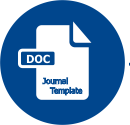Pandemi Tak Berarti Surut Rejeki: Studi Kasus Social Media Marketing Strategies Pada Usaha Mikro Berbasis Rumah Pawon Bu Puspa
DOI:
https://doi.org/10.12928/jfc.v3i2.3902Keywords:
bisnis kuliner, pandemi Covid-19, strategi pemasaran media sosial, usaha mikro berbasis rumahAbstract
Sebagai langkah bertahan hidup, beberapa usaha mikro tumbuh di tengah masyarakat. Meskipun demikian, usaha yang tumbuh di tengah pandemi ini, tidak semua mampu berkembang dengan baik. Penelitian ini bertujuan mengetahui langkah penggunaan media sosial sebagai strategi pemasaran usaha mikro berbasis rumah yaitu Pawon Bu Puspa, guna menjawab keresahan penggiat usaha mikro dalam melakukan strategi pemasaran saat pandemi. Penelitian ini adalah kualitatif dengan pendekatan studi kasus. Pengumpulan data menggunakan pengamatan daring dan wawancara secara daring. Teknik pemilihan sampel menggunakan purposive sampling kepada narasumber terpilih, tentang pemanfaatan media sosial dalam pemasaran Usaha Mikro Pawon Bu Puspa pada saat pandemi di Kota Surakarta. Hasil penelitian menemukan bahwa pemanfaatan media sosial dalam pemasaran, sangat aman dan efektif di tengah situasi pandemi. Aman karena pembeli dan penjual berinteraksi lewat media sosial dan efektif karena omset Pawon Bu Puspa cenderung stabil dari awal pandemi hingga kini. Media sosial yang digunakan dalam pemasaran diantaranya adalah WhatsApp dan Instagram. Konten yang ditayangkan adalah produk dan pengetahuan seputar produk yang dipasarkan, baik manfaat maupun testimoni dari pelanggan. Selain aktif di akun Instagram Pawon Bu Puspa, pemasaran juga aktif pada akun Instagram pribadinya dan nomor WhatsApp admin Pawon Bu Puspa. Hasil penelitian dapat menjadi rujukan keberhasilan penggunaan media sosial dalam strategi pemasaran usaha mikro di tengah kondisi pandemi.
References
Barger, V., Peltier, J. W., & Schultz, D. E. (2016). Social media and consumer engagement: a review and research agenda. Journal of Research in Interactive Marketing, 10(4), 268287. https://doi.org/10.1108/JRIM-06-2016-0065
Clark, D. N., & Douglas, H. (2014). Micro-enterprise growth: Lessons from home-based business in New Zealand. Small Enterprise Research, 21(1), 8298. https://doi.org/10.1080/13215906.2014.11082078
Creswell, J. W. (2007). Qualitative inquiry and research design: Choosing among five approaches (2nd ed.). Thousand Oaks, CA: Sage.
Dollarhide, M. E. (2020). Social media definition. Retrieved February 11, 2021, from https://www.investopedia.com/terms/s/social-media.asp
Ershadi, M. J. (2019). Measuring the impact of soft and hard total quality management factors on customer behavior based on the role of innovation and continuous improvement. 31(6), 10931115. https://doi.org/10.1108/TQM-11-2018-0182
Holliman, G., & Rowley, J. (2014). Business to business digital content marketing: Marketers perceptions of best practice. Journal of Research in Interactive Marketing, 8(4), 269293. https://doi.org/10.1108/JRIM-02-2014-0013
Indonesia, P. R. Undang-undang Republik Indonesia No. 20 Tahun 2008 tentang Usaha Mikro, Kecil dan Menengah. , Pub. L. No. 20 (2008).
Kaplan, A. M., & Haenlein, M. (2010). Users of the world, unite! The challenges and opportunities of Social Media. Business Horizons, 53(1), 5968. https://doi.org/10.1016/j.bushor.2009.09.003
Li, F., Larimo, J., & Leonidou, L. C. (2021). Social media marketing strategy: definition, conceptualization, taxonomy, validation, and future agenda. Journal of the Academy of Marketing Science, 49(1), 5170. https://doi.org/10.1007/s11747-020-00733-3
Mason, C. M., Carter, S., & Tagg, S. (2011). Invisible Businesses: The Characteristics of Home-Based Businesses in the United Kingdom. Regional Studies, 45(5), 625639. https://doi.org/10.1080/00343401003614241
Miller, D., Costa, E., Haynes, N., McDonald, T., Nicolescu, R., Sinanan, J.,Wang, X. (2016). How the World Changed Social Media. In How the World Changed Social Media (1st ed.). https://doi.org/10.2307/j.ctt1g69z35
Prihatna, K. A., Ayal, R., Sistarani, M., & Christanti, Y. (2019). What Whatsapp status enables reseller to do as channel. International Journal of Innovative Technology and Exploring Engineering, 8(9 Special Issue 3), 4455. https://doi.org/10.35940/ijitee.I3009.0789S319
Salmons, J. (2015). Qualitative online interviews (2nd ed.; V. Knight, Ed.). London: Sage Publications Ltd.
Sayers, J. G. (2010). Home-based business in the city. Small Enterprise Research, 17(February), 165176. https://doi.org/https://doi.org/10.5172/ser.17.2.165
Downloads
Published
Issue
Section
License
Copyright (c) 2020 Universitas Ahmad Dahlan

This work is licensed under a Creative Commons Attribution-ShareAlike 4.0 International License.
Authors who publish with JOURNAL OF FOOD AND CULINARY agree to the following terms:
- All articles published are Open Access that means they will be immediately and permanently free for everyone to read and download. We use the CC-BY-SA license options under Creative Commons Attribution License (CC BY-SA 4.0). Creative Commons Attribution License (CC BY-SA 4.0). CC-BY-SA assures that all works will be available under CC-BY-SA always and no risk of commercial actions against the will of the copyright holder.
- Anyone can use, copy and disseminate the material in any medium or format; as well as re-use, re-mix, transform, and build upon the material for any purpose, even commercially. However, they must acknowledge the authors by giving appropriate credits (cite to the article or content), provide a link to the license, and indicate if changes were made and use under the same license as the original.
- Authors retain copyright and grant license exclusive rights in their article to Universitas Ahmad Dahlan as publisher of the JOURNAL OF FOOD AND CULINARY.
- Authors have the right to retain patent, trademark and other intellectual property rights (including research data).
- Authors have the right to proper attribution and credit for the published work.
Copyright Transfer Agreement
- The Authors submitting the manuscripts do so on the understanding that if they are accepted for publications, copyright of the articles shall be assigned to Universitas Ahmad Dahlan as publisher of the JOURNAL OF FOOD AND CULINARY.
- Universitas Ahmad Dahlan as publisher of The JOURNAL OF FOOD AND CULINARY, the Editors, and the Editorial Board Members of the JOURNAL OF FOOD AND CULINARY make every efforts to ensure that no wrong or misleading data, opinions or statements are published in the journal. In any way, the contents of the articles and circulars published in the JOURNAL OF FOOD AND CULINARY are the sole and exclusive responsibility of their respective authors and advertisers.
- The publisher may revoke the publication for violating the ethical code of conduct.





